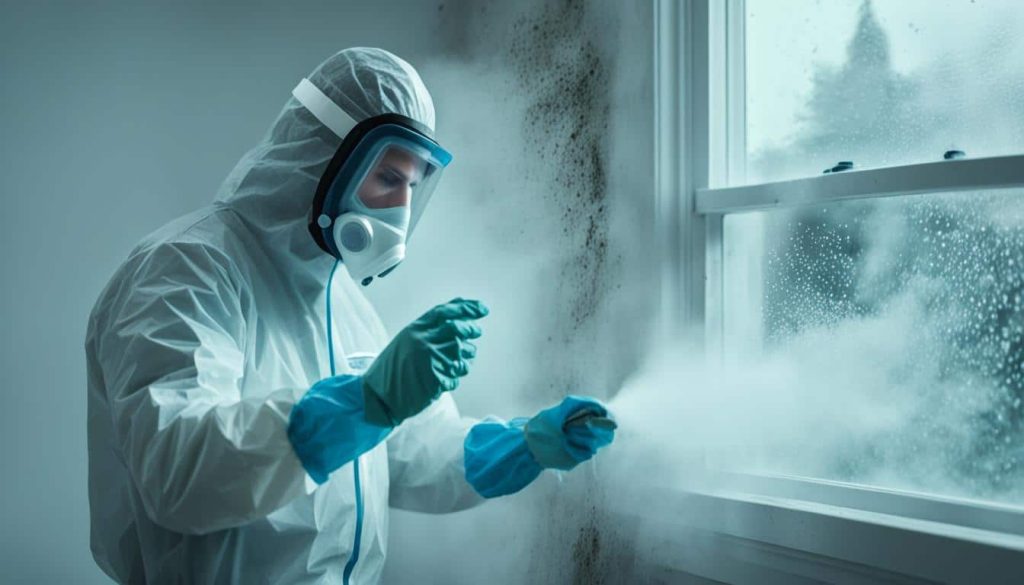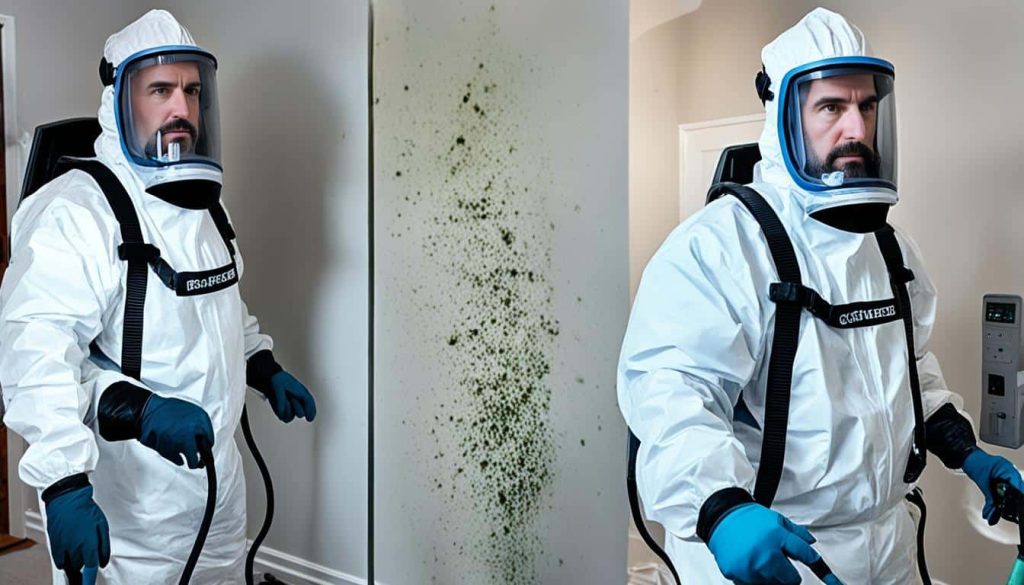Traveling often involves staying in hotels or motels, where you expect to find a clean, safe environment. However, my recent experience reveals a crucial aspect of mold and hotel stays that many overlook: the air quality and potential presence of mold. This article explores why HVAC systems in hotels are critical for maintaining healthy air quality and how to identify potential mold issues during your stay.
Array of Solutions, a trusted name in mold removal in Greenville South Carolina since 2007, stands ready to tackle your mold woes. With our expert mold inspection Greenville services and EPA-Registered credentials, we’re equipped to detect, remove, and prevent mold growth in your home or business.
Table of Contents
The Hidden Threat: Mold and Hotel HVAC Systems
During a recent stay at a hotel, I took a photo of the HVAC unit in my room, which led to a critical discovery. After inspecting and sampling the unit’s filter, I found alarming levels of Stachybotrys, commonly known as black mold. This type of mold is notorious for its toxicity and can significantly impact health.
Stachybotrys is among the most dangerous molds, known for its ability to produce mycotoxins that can cause severe respiratory problems and other health issues. Although finding such high levels of black mold is rare in my professional work, this discovery was a stark reminder of how even brief exposure to contaminated environments can pose health risks.

Why Hotels Are Prone to Mold Issues
The average length of stay in American hotels is around one day. This brief exposure often means that guests might not immediately connect their sickness with the hotel environment. Hotels and motels, by their nature, are high-traffic areas with varying levels of cleanliness and maintenance. HVAC systems in these establishments can become breeding grounds for mold and bacteria if not properly maintained.
Here’s why hotels are particularly susceptible to mold problems:
- High Humidity Levels: Hotels often have high humidity levels due to frequent use of showers and changes in weather conditions. This moisture can easily lead to mold growth if HVAC systems are not regularly cleaned and maintained.
- Inconsistent Maintenance: Hotels with large numbers of rooms might struggle with consistent maintenance of HVAC systems. Dust and mold can accumulate in filters and vents, leading to poor air quality.
- Limited Ventilation: Rooms that are frequently sealed and have limited ventilation can trap moisture and contaminants, creating an ideal environment for mold growth.
Identifying Mold Risks in Your Hotel Room
When you check into a hotel, there are a few simple steps you can take to assess the air quality and check for potential mold issues:
- Inspect the HVAC System: Removing a vent cover is straightforward and similar in difficulty to changing a light bulb. Look for visible signs of mold or excessive dust. If you notice anything unusual, it might indicate a problem with the HVAC system.
- Check for Odd Odors: Upon entering your room, pay attention to the smell. An overpowering odor of disinfectant or other masking agents can be a red flag. Hotels often use strong odors to cover up unpleasant smells, which might be masking a deeper issue.
- Monitor Your Health: Be aware of how you feel during your stay. Symptoms like coughing, sneezing, or headaches could be signs of poor air quality and potential mold exposure.
- Request Information: If you suspect mold issues, ask the front desk for information about their cleaning and maintenance practices. While they might offer you a different room, this room could be just as problematic.
Taking Action
If you’re concerned about mold exposure during your hotel stay, you can take some practical steps:
- Do-It-Yourself Testing: Contact me for a do-it-yourself method to test for black mold in your hotel room. While not a replacement for professional testing, it can help you assess the situation and decide whether further action is needed.
- Report Concerns: Inform the hotel management about any mold concerns. If the hotel is receptive, they might take steps to address the issue or offer you alternative accommodations.
- Seek Professional Help: For a thorough assessment, especially if you suspect severe mold issues, consider contacting a mold expert. They can provide a detailed inspection and remediation plan if necessary.

Conclusion
Your hotel stay should be comfortable and safe, free from hidden health hazards like mold. By being proactive and vigilant, you can protect your health and enjoy a pleasant travel experience. If you need assistance or have questions about mold in your hotel, don’t hesitate to reach out to me, Douglas Whitehead, at 864-710-6413. For more information and tips, visit Array of Solutions.
